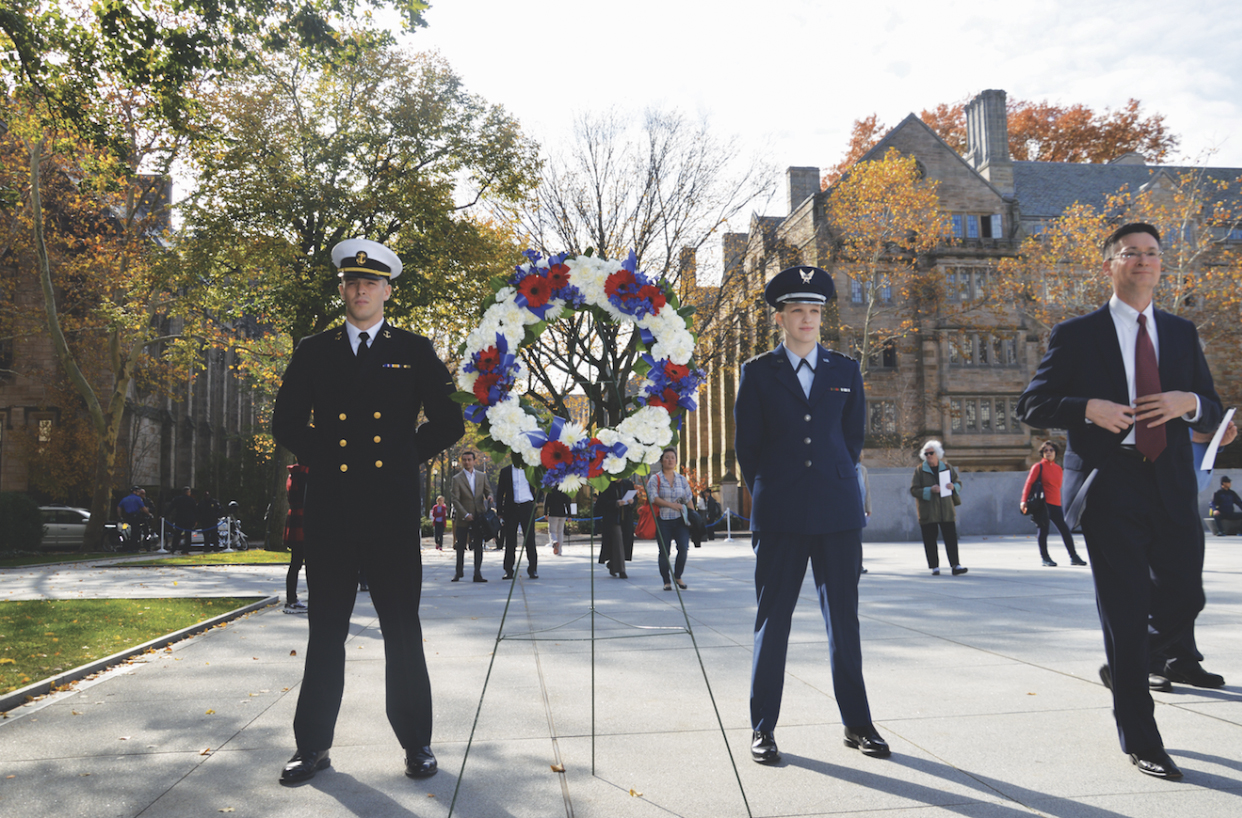
Yale Daily News
Seven years after the launch of the program, the Warrior-Scholar Project — a two-week college preparatory boot camp for veterans — received new funding from the University that will help alleviate financial pressure from the nonprofit.
Three Yale alums — Jesse Reising ’11, Nick Rugoff ’11 and Christopher Howell ’14 — founded the Warrior-Scholar Project, which is dedicated to helping veterans develop the skills and confidence to succeed in colleges. When the program first launched in 2012, Reising noted that it was incredibly difficult to obtain initial funding and support. Today, most universities that partner with WSP provide “in-kind” support — which includes provision of food and classroom spaces for students — that amounts to nearly 50 percent of the program’s budget. While Yale did not provide this financial support for several years, WSP CEO Ryan Pavel said the University updated their partnership with the group and has agreed to give 500 dollars per veteran scholar from 2019 onwards. University Provost Benjamin Polak did not respond to a request for comment.
“We’ve had a really successful program there for a number of years. That’s been the cornerstone of WSP since its genesis,” Pavel said. “There are many reasons for Yale and WSP to ensure a successful partnership.”
The program, now offered at 18 universities, aims to shift veterans’ understanding of life at a university, according to Reising. For example, a professor is supposed to serve as an authority figure, but one who you question and challenge is a figure different than many of those in power in the army, Reising said. The idea is to enter as a veteran and leave as a student and eliminate imposter syndrome.
According to Reising, the program would not have started had it not been for his tragic injury. With nine minutes left in the last quarter of the 2010 Yale-Harvard game, Reising — who at the time was hoping to join the Marine Corps — tackled Harvard’s running back and tore two nerves in his neck. The injury precluded his dream of serving the country as a Marine.
After this injury, Reising said he sought other opportunities to work with the military and decided to launch WSP.
For his part, Howell, who served in the Australian Army, studied at the University of Sydney and transferred to Yale. In an interview, he attributed part of his academic success to his brother’s advice regarding how being a student differed from being a soldier.
“We wanted to replicate … what made the experience so special for [Howell] and other veterans,” said Reising. “Just learning how to be a critical thinker. I think that many people who take college for granted also take the understanding [of a critical mind] for granted.”
As a student at Yale, Howell was a member of the Brady-Johnson Program in Grand Strategy led by renowned history professor John Gaddis. He said that Gaddis was instrumental in the group’s success early on. Gaddis served as one of the group’s first professors and a board member. The nonprofit has grown steadily since then, with more professors volunteering to teach seminars. Reising noted that professors help out with classes and work with veterans on the college admissions process.
The program costs around $70,000 to fund a week for 17 participants, and is funded through both in-kind support and grants. In-kind support generally consists of a university providing classrooms, dining and housing free of charge to the group. This financial assistance accounts for a little less than half of the total cost of the program at most institutions. The other half comes from grants, internal funding and fundraising, which pays for writing instructors, teaching assistants and travel for the staff.
According to Pavel, there used to be around 30 WSP students at Yale. In the past couple years, that number has decreased to 20. But in 2020 the group intends to return to 30.
Three Eli Whitney students who matriculated this year are WSP alumni. Pavel said the University has a successful partnership with the organization, in part due to the program’s origin on Yale’s campus.
While WSP originally offered one session a year in 2012, the non-profit now offers up to 8 sessions a year across 18 different campuses. Today, WSP offers courses in humanities, STEM and Markets & Business Ventures.
This past summer the group served 253 veterans nationwide, a figure higher than previous summer terms.
Skakel McCooey | skakel.mccooey@yale.edu
Kelly Wei | kelly.wei@yale.edu
Editor’s note: The author of this article is a current member of the Yale Daily News’ managing board of 2021. Generally, the News does not allow editors listed on its masthead to publish content in the newspaper’s daily coverage. However, this story was written and primarily edited while the author was still a staff reporter working under the News’ managing board of 2020, and is thus an exception to the rule.







